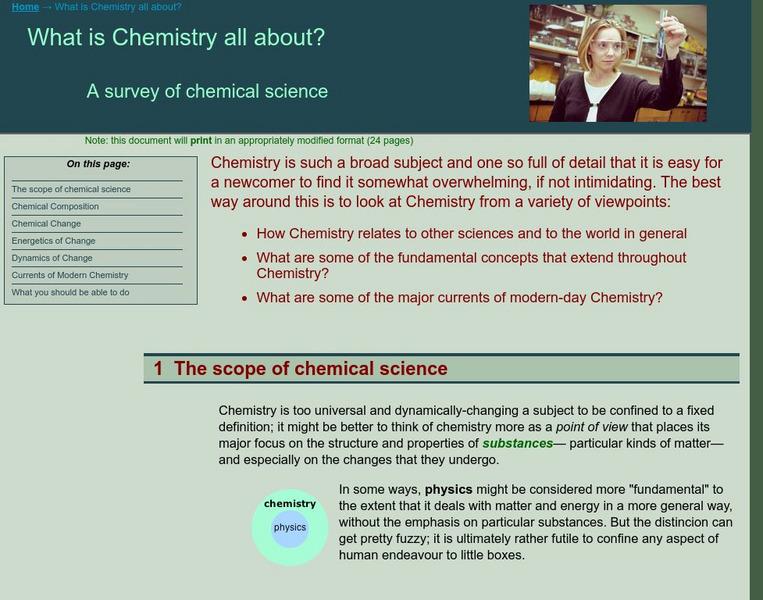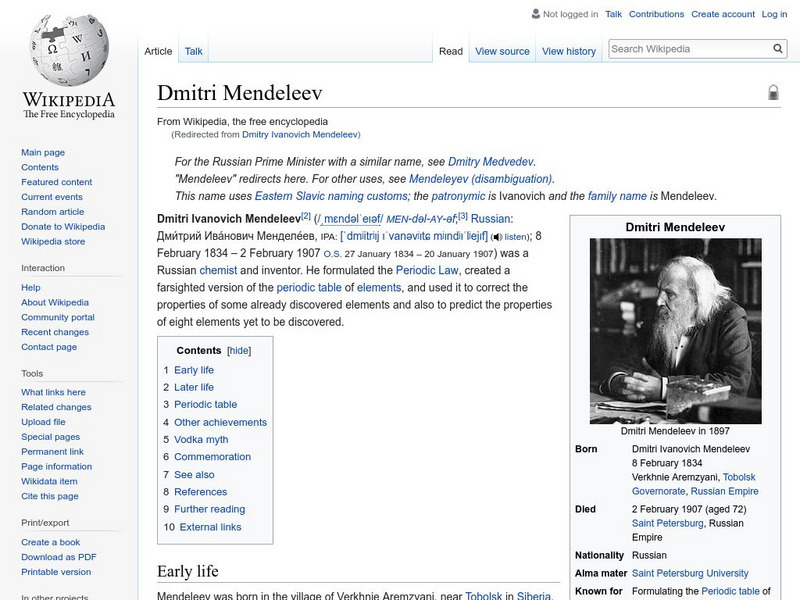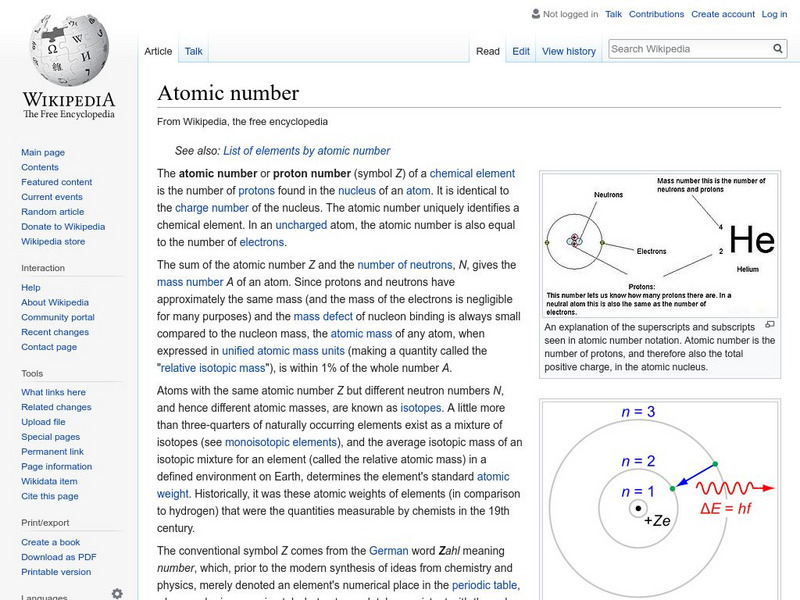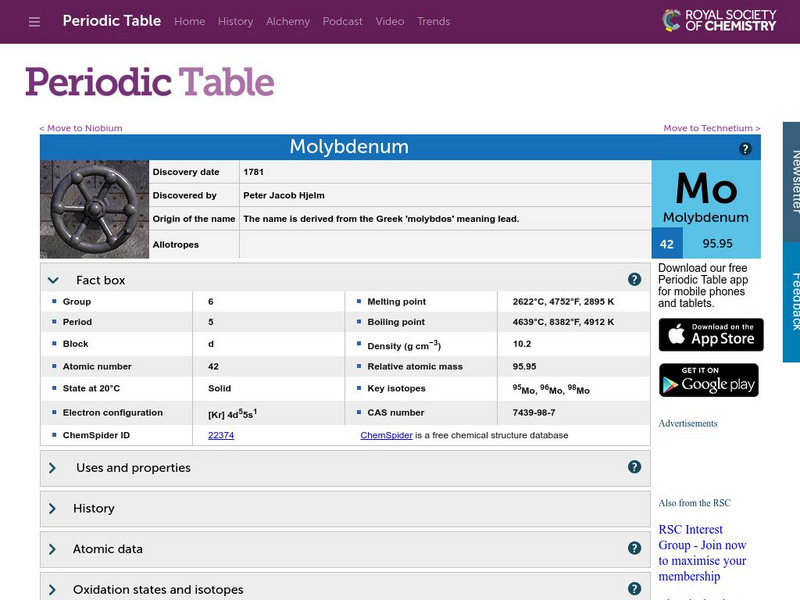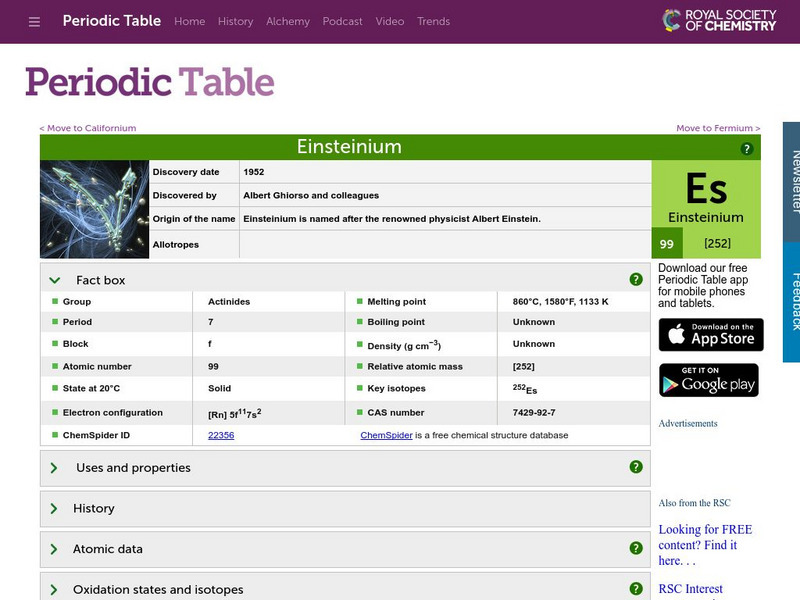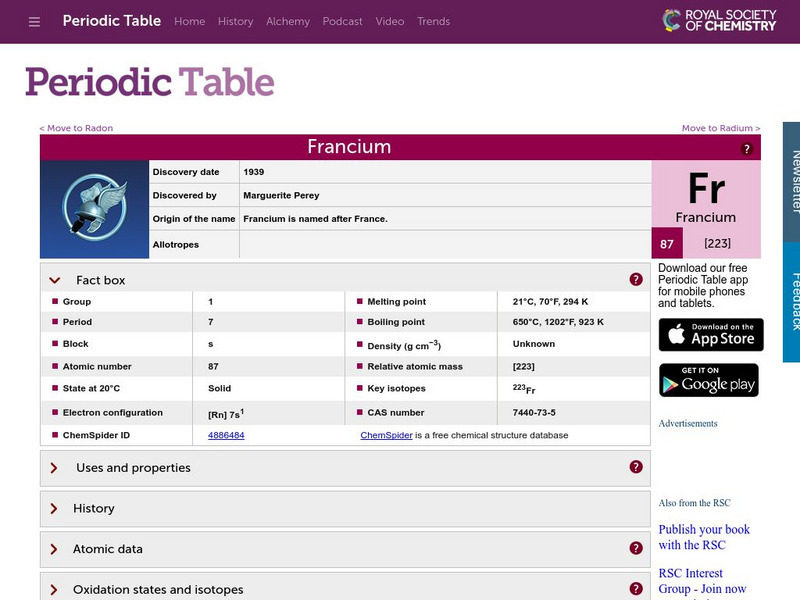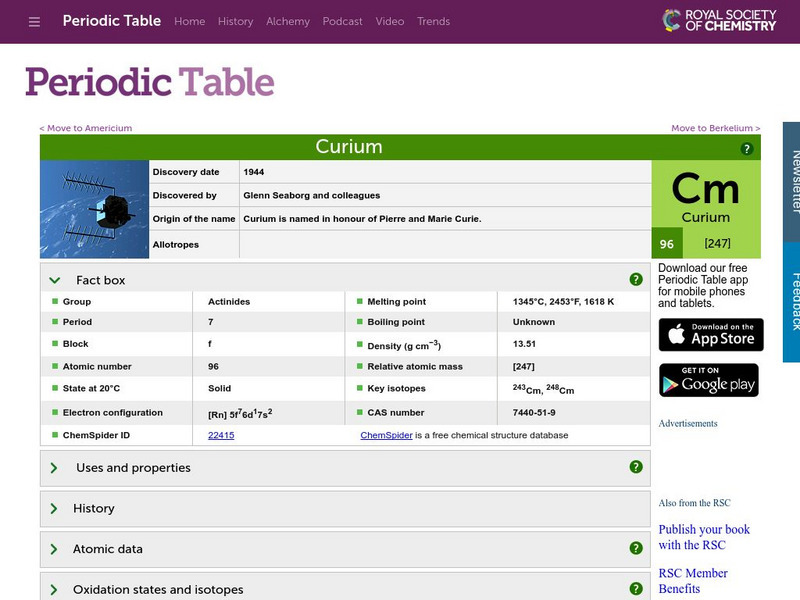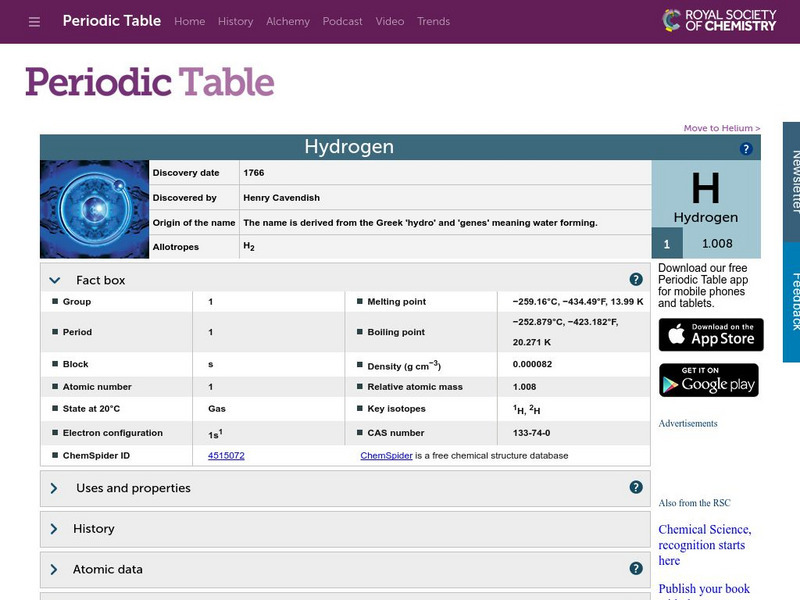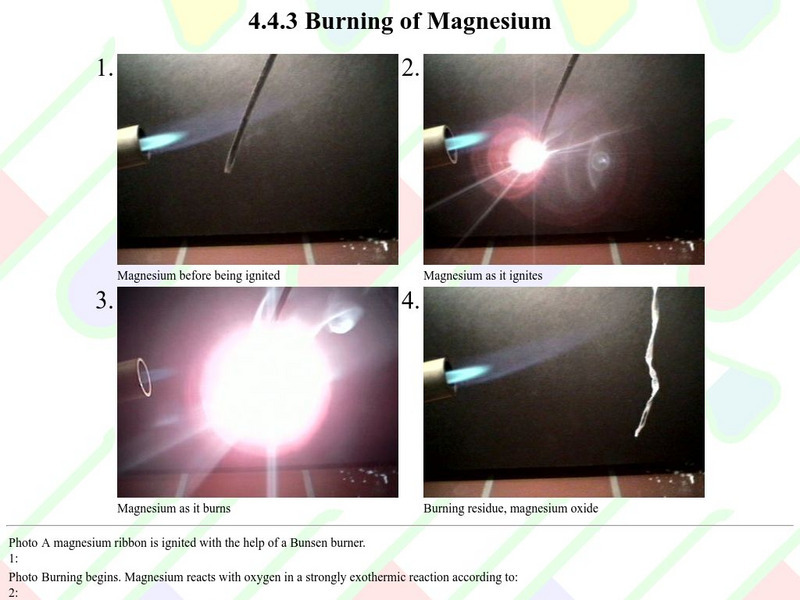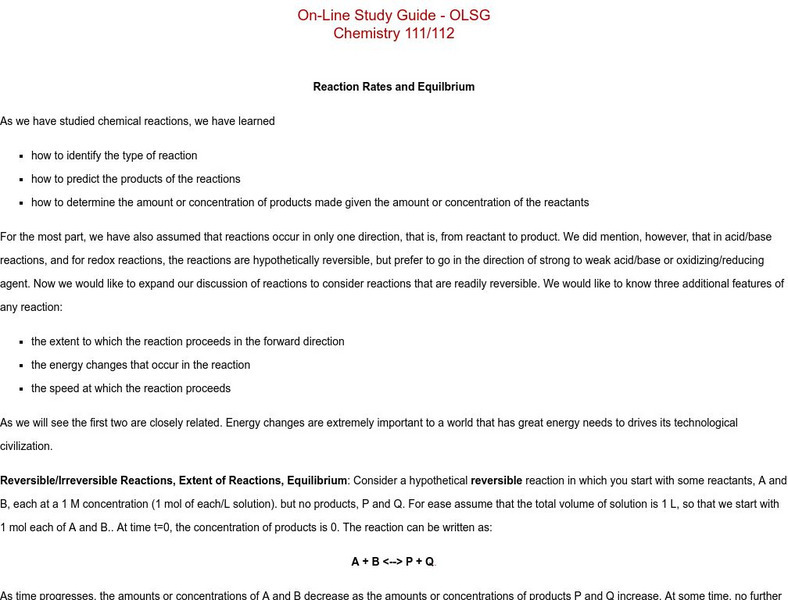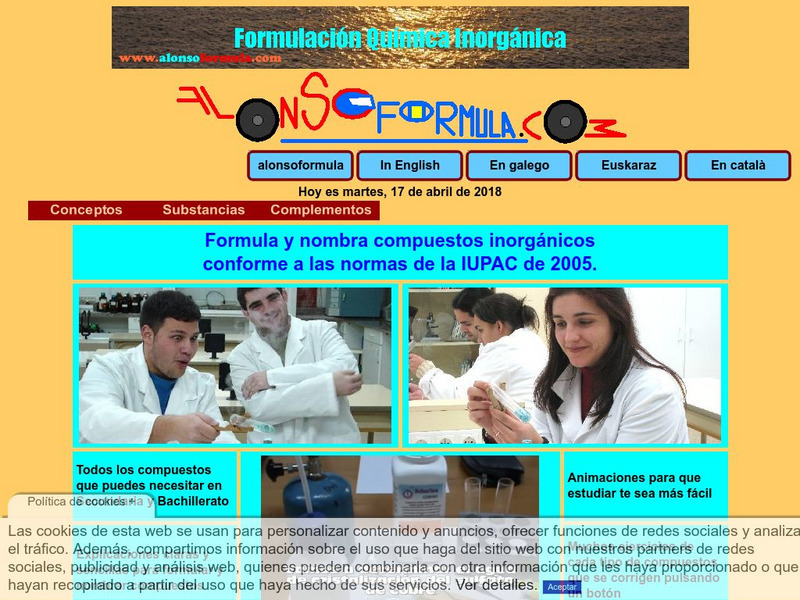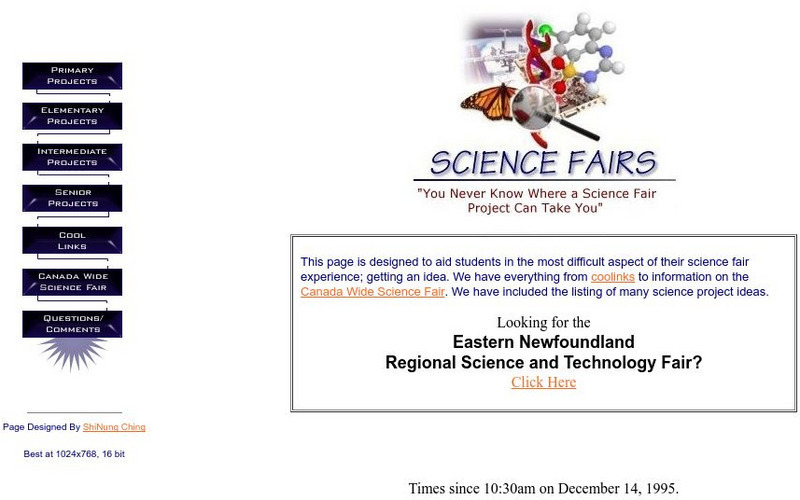Simon Fraser University
Chem1 Virtual Textbook: Chemical Change
Chemical change is a section of a larger overview on Chemistry, covering a variety of aspects. This section focuses on chemical change including the difference between chemical change and physical change.
Environmental Chemistry
Environmental chemistry.com: Dictionary
This dictionary of chemical and environmental terms is a very helpful site. Click on the word and you will be directed to its definition quickly. Quite convenient and easy to use.
Wikimedia
Wikipedia: Dmitri Mendeleev
This overview of the life and accomplishments of chemist Dmitri Mendeleev discusses his upbringing and education. It also provides details on his creating the Periodic Table and his presentation to the Russian Chemical Society.
Purdue University
Purdue University: Calcium Hydroxide Crystal Structure
A picture of the crystal structure of calcium hydroxide. Additional plug-in required.
Wikimedia
Wikipedia: Atomic Number
Wikipedia provides the definition of the term, "Atomic number," a term used in chemistry and physics to represent the number of protons in the nucleus of an atom.
Royal Society of Chemistry
Chemical Society: Molybdenum
This resource from Chemical Society provides a short paragraph with information on molybdenum and its uses. Less detail than other sites, but easy to follow.
Royal Society of Chemistry
Royal Society of Chemistry: Visual Elements: Silicon
Very short entry describing silicon.
Royal Society of Chemistry
Royal Society of Chemistry: Visual Elements: Selenium
Short entry describing selenium and a couple of its uses.
Royal Society of Chemistry
Royal Society of Chemistry: Europium
Short summary of a description of europium, along with its uses.
Royal Society of Chemistry
Royal Society of Chemistry: Manganese
A concise page with some basic information on manganese and its applications.
Royal Society of Chemistry
Royal Society of Chemistry: Erbium
This resource presents a short description of erbium's properties and uses.
Royal Society of Chemistry
Royal Society of Chemistry: Einsteinium
This resource presents a short basic introduction on einsteinium.
Royal Society of Chemistry
Royal Society of Chemistry: Francium
This resource offers a short descriptive summary of francium.
Royal Society of Chemistry
Royal Society of Chemistry: Fluorine
This resource presents a short summary of some descriptive information on fluorine.
Royal Society of Chemistry
Royal Society of Chemistry: Fermium
This resource presents a short summary of some interesting information on fermium.
Royal Society of Chemistry
Periodic Table: Copper
A short summary of some basic information on copper and how it is used.
Royal Society of Chemistry
Visual Elements: Hydrogen
Short, but descriptive summary on hydrogen. Discusses this element's composition and characteristics, and includes a graphic as well.
School of Biological and Chemical Sciences, Queen Mary University of London
Queen Mary Univ.: Atomic Weights of the Elements 2017
This site from the Queen Mary University of London provides a list of the discovered atomic weights and elements up into the year 2017.
Other
Siegen University: Burning of Magnesium
This site from Siegen University contains brief information and a step-by-step photo display of burning magnesium. The information is very short but the pictures are definately worth checking out.
Other
On Line Study Guide/reaction Rates and Equilbrium
Here's a full and understandable discussion of Reaction Rates and Equilibrium.
Other
Alonsoformula: Formulacion Quimica Inorganica
Do you want to learn about inorganic formulation? This website will help you to name inorganic compounds. For each type of substances you will have a brief explanation and some examples. Exercises are provided to test what you have...
Other
Cdli: Intermediate Projects Physics
This site from the Center for Distance Learning and Innovation provides a really extensive listing of possible science fair projects. Maybe a hundred. Physics, Engineering, Meteorology, Chemistry, Botany. Interesting goodies.
Other
Cdli: Science Fairs Homepage
At this site from the Center for Distance Learning and Innovation there's a monstrous listing of possible science fair projects. You can choose from primary (grades 1-4), elementary (grades 4-6), intermediate (grades 7-9), or senior...


